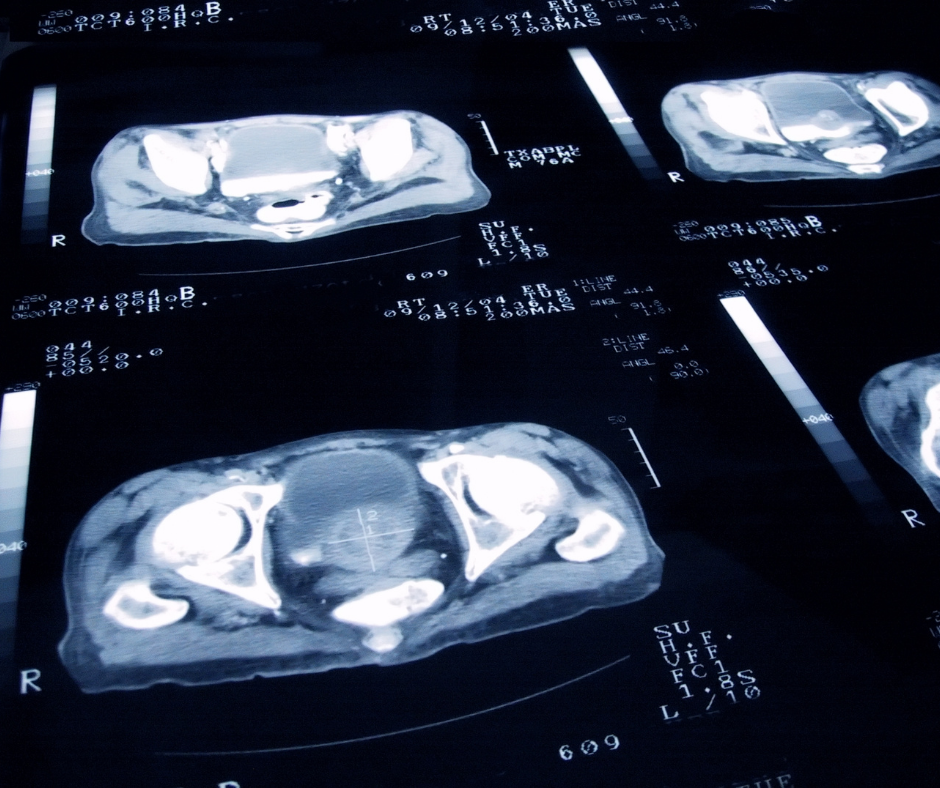 Prostate cancer is the most common cancer, and one of the leading causes of cancer death, among men in the United States, according to the Centers for Disease Control and Prevention (CDC). The older a man gets the higher the risk becomes of a prostate cancer diagnosis. That’s why all men are encouraged to get regular prostate screenings, to understand the signs and symptoms of prostate cancer, treatment options, and ways to reduce the risk of being diagnosed with prostate cancer.
Prostate cancer is the most common cancer, and one of the leading causes of cancer death, among men in the United States, according to the Centers for Disease Control and Prevention (CDC). The older a man gets the higher the risk becomes of a prostate cancer diagnosis. That’s why all men are encouraged to get regular prostate screenings, to understand the signs and symptoms of prostate cancer, treatment options, and ways to reduce the risk of being diagnosed with prostate cancer.
While screenings are based on an individual’s risk, you should start getting screened for prostate cancer between the ages of 55 and 69, according to the U.S. Preventive Services Task Force. It’s important to discuss with your doctor when you should start the screening process. Regular screenings help detect potential cancer early while they are the most treatable.
It’s important to be aware of the symptoms that could indicate that you have prostate cancer. Although symptoms are rare, sometimes men may experience them before screenings begin. Symptoms could be:
- Difficulty starting urination
- Weak or interrupted flow of urine
- Frequent urination, especially at night
- Pain or burning during urination
- Blood in the urine or semen
- Pain in the back, hips, or pelvis that won’t go away
- Painful ejaculation
If you are experiencing any of these symptoms, it’s important to schedule an appointment with your doctor to discuss what might be causing these symptoms.
The most recommended exam for prostate cancer screening is the Prostate Specific Antigen (PSA) Test.
A PSA Test is a blood test that measures the level of PSA in the blood, which is a substance made by the prostate. If the levels are abnormally high, it could be an indicator of prostate cancer. But because there are many reasons for a person’s PSA levels to be high, your doctor may also recommend a biopsy to find out if you have prostate cancer.
Should the need arise the MemorialCare Todd Cancer Institute at Long Beach Medical Center will diagnose and treat your prostate cancer. We are committed to helping patients overcome the challenges of cancer by providing an environment where patients, families, and an expert care team work together to develop individualized treatment plans.
Some of the treatment options that the Todd Cancer Institute offers include:
- Brachytherapy, an internal radiation therapy. In brachytherapy, instead of using radiation beams delivered by special equipment, radioactive material is placed directly into, or as close as possible to, the cancer and travels a very short distance in the body.
- Chemotherapy, is a type of therapy that usually treats the whole body.
- Hormone Therapy, a systematic therapy that uses medication to block the production of hormones, such as estrogen and testosterone. Hormone therapy is commonly combined with surgery and/or radiation therapy.
- Radiation Therapy, uses high-energy particles or waves, much like X-rays, gamma rays, electrons, or protons to destroy or damage cancer cells.
These are just some of the treatments that the MemorialCare Todd Cancer Institute has to offer. Depending on what you, your family, and your expert care team decide is best will determine the best treatment option for you.
The MemorialCare Todd Cancer Institute also offers a Cancer Care Support Group. This is a group for anyone at any stage of their cancer journey. They provide educational information, supportive discussion, and address vital cancer issues and concerns.
As always, a healthy lifestyle can help protect you from a potential cancer diagnosis. Some of the best ways are to maintain a healthy body weight, exercising daily for 30 minutes, limiting intake of processed foods, and visiting your doctor annually for a regular checkup.
To learn more visit memorialcare.org/TCI.